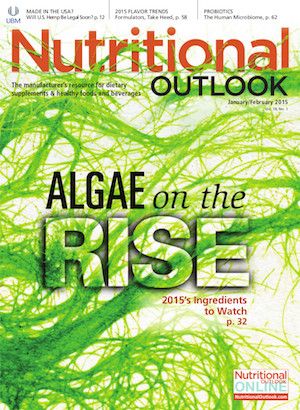EFSA Says Caffeine Safe for EU Adults at 400 mg Daily or 200 mg in Single Dose
The EU opinion includes details on caffeine's combo with alcohol and exercise, plus safe doses for children.

The European Food Safety Authority (EFSA; Parma, Italy) has completed its safety assessment of caffeine intake, concluding in a draft opinion that a 400-mg daily intake of caffeine and a 200-mg single dose of caffeine “do not raise safety concerns for adults in Europe.”
EFSA’s NDA Panel (Panel on Dietetic Products, Nutrition, and Allergies) is now accepting public comments on the draft and plans to hold a stakeholder meeting in March to discuss its conclusion.
The NDA opinion includes more key takeaways:
- Caffeine plus exercise: Single, 200-mg caffeine doses in adults do not raise safety concerns when taken less than two hours before exercise.
- Caffeine plus alcohol: Not likely that caffeine interacts adversely with other constituents of energy drinks, such as taurine and D-glucurono-γ-lactone, or alcohol.
- Caffeine for pregnant women: Caffeine intake of up to 200 mg per day does not raise safety concerns for the fetus
- Caffeine for children: For children (3-10 years of age) and adolescents (10-18 years of age), daily intakes of 3 mg per kg of body weight are considered safe
- Caffeine interferes with sleep: Single doses of 100 mg may increase sleep latency (the amount of time it takes to fall asleep) and shorten sleeping time in some adults
In 2014, EFSA did deliver a negative caffeine opinion regarding a health claim petition submitted by SmithKline Beecham linking a low dose of caffeine (40 mg or more) with increased alertness. EFSA pointed out that while the NDA Panel previously issued a positive opinion for increased alertness and a caffeine intake of 75 mg or more, the scientific body concluded evidence does not support the same alertness effect at a lower caffeine dose:
In weighing the evidence, the Panel took into account that most studies which measured reaction time in various cognitive tasks found no effect of caffeine at doses < 75 mg. In the particular dose range between 40 and < 75 mg, no effect of caffeine was found on the majority of outcome measures of reaction time. The Panel notes that the majority of studies with caffeine doses of 75 mg or higher showed a significant reduction in measures of reaction time. On the basis of the evidence provided, the Panel reiterates its previous conclusion that, in order to bear the claim, a product should contain at least 75 mg caffeine per serving.
Also read:
Should We Label Caffeine Content in Energy Drinks?
Jennifer Grebow
Editor-in-Chief
Nutritional Outlook magazine
jennifer.grebow@ubm.com
Photo © iStockphoto.com/letty17





















